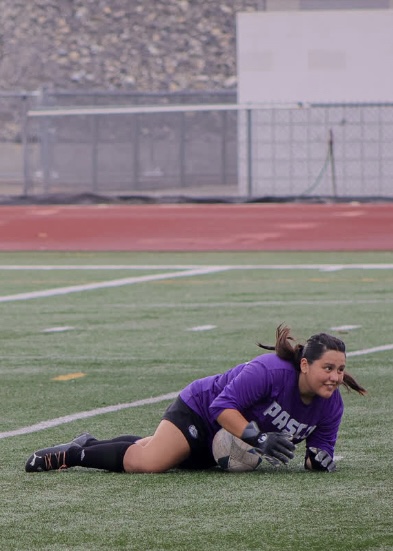Health and lifestyle habits are a very big part of being a student athlete, which is why it’s important for them to have the proper nutrition and exercise they need. A student’s diet and lifestyle habits can impact them in many ways, like their performance, physical health, energy, muscle strength, endurance, focus, recovery, mental health, and risk of injury. Student athletes might not play as well if they are dehydrated or hungry, which affects their endurance and performance during practice or games. If athletes don’t exercise or stretch often, it will affect their physical health, causing muscle pain and increasing the risk of injury due to low mobility.
Sleep is another important factor for student athletes’ overall health. When students don’t get enough sleep, it affects their endurance, ability to focus during class, mental health, and energy throughout the day. Research shows that sleep is when the body repairs micro tears in muscles that occur during training, which is why it’s recommended for student athletes to get at least eight to ten hours of sleep each night.
Student athletes should make sure they have a balanced diet that includes things like enough carbohydrates and protein for muscle repair. Whole grains, fruits, and vegetables are also important to consume, especially when playing a sport and having to regain all the energy you lose while training. The recommended diet for athletes is 45-65% carbohydrates, 10-30% protein, and 25-35% fats. Drinking water throughout the day and not just during workouts will keep you hydrated, which is important to avoid dizziness, dehydration, headaches, and muscle cramps. Some healthy pre-workout snacks that give you energy are things like yogurt, fruits, and smoothies.
I interviewed Pasco High math teacher Darren Mezger, a former coach, and asked him how he advises his athletes about health. I asked him more about his coaching experience and what grades he coached, “I have coached football at the college, high school, and middle school levels now for 23 years. I have coached the high school track for 17 years. I have coached high school and middle school basketball for 7 years, and I even coached 1 year of softball.” Mezger replied. “How do you involve nutrition and healthy eating habits in your athletes?” I asked, “It is a daily conversation, and on some occasions in summer weight training sessions, some form of protein has been provided to athletes I have coached. I also have given bananas before games to prevent cramping, and had oranges for halftime of games to rehydrate the body. What you put in your body and when you consume the food and water you eat will have a direct correlation with how you perform,” he replied.
This shows more proof about fruits being a good food option before performing. Another issue bad eating habits make is weight issues, which is why I asked Mezger, “how do you handle situations where weight or eating habits affect athletes?” to which he replied, “Daily we talk about hydration habits and nutrition. It has to be communicated so athletes become more aware of what they need to put in their body and why”.
I also asked him what kinds of workouts and stretches he finds most beneficial for athletes to do, “Explosive exercise that focuses on speed and power benefits athletes way more than just strength, but I believe every workout you do must have the 5 key components an athlete must have, which are speed, power, agility, flexibility, and strength” Mezger said.
The last question I asked Mezger was, “What lifestyle habits would you consider the most important for student athletes?”
“I would recommend getting 8 hours of sleep every night, which really helps your body recover, especially in a long season when you are competing”. All this evidence shows the importance of a healthy diet and lifestyle for student athletes.








